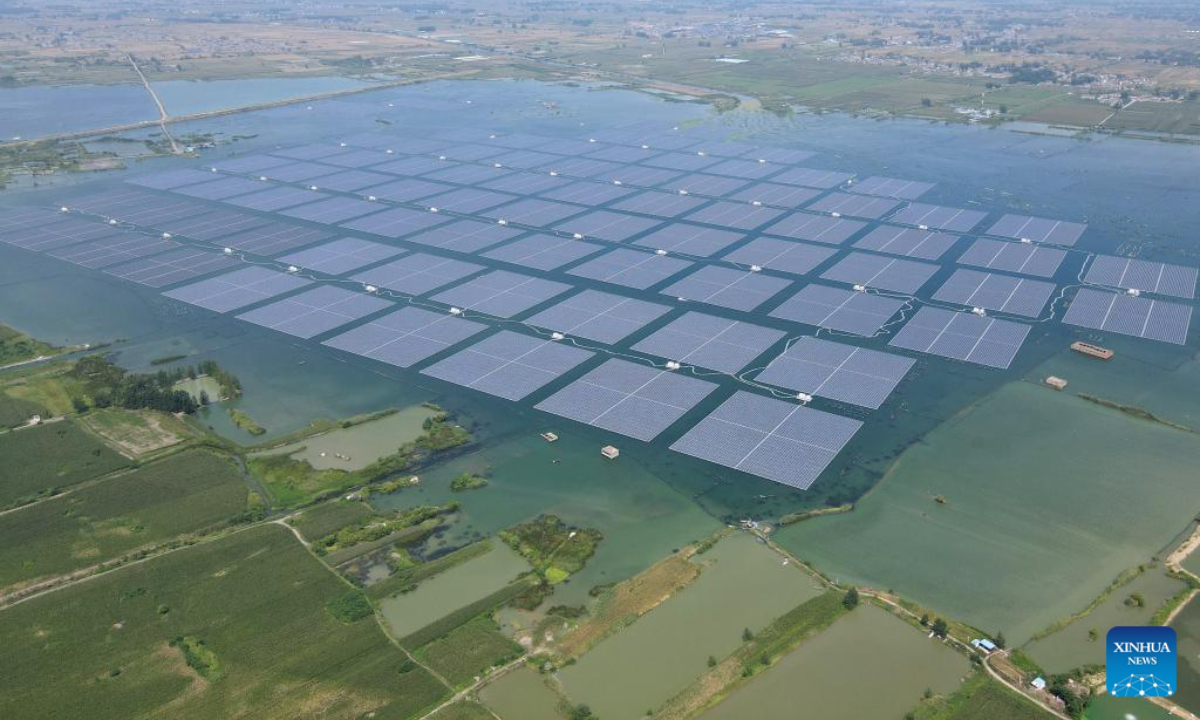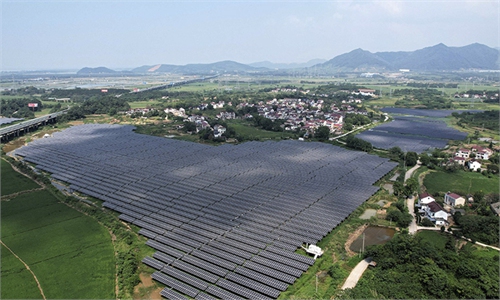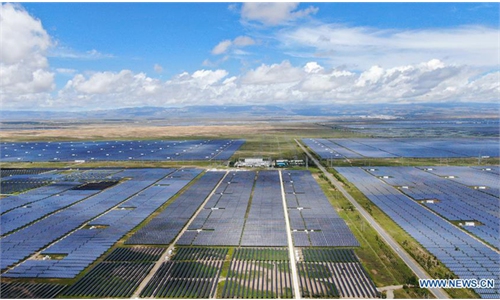Authorities summon solar panel makers to meetings to avert price gouging, other irregularities

Aerial photo taken on Aug. 25, 2022 shows a view of Maowei floating photovoltaic power station on water in Gucheng Township of Yingshang County, East China's Anhui Province. Photo:Xinhua
Chinese authorities recently summoned key polysilicon producers to meetings, in a bid to avoid price gouging and promote the overall healthy development of the domestic photovoltaic (PV) industry.
Experts and industry insiders said that the meetings will promote the synergistic development of the upstream and downstream segments of the PV industry, and further enhance the sector's international competitiveness amid booming demand from the developed economies.
During the meetings, the Ministry of Industry and Information Technology (MIIT), together with the State Administration of Market Regulation and the National Energy Administration, told the attending companies and institutions to standardize their management and avoid price gouging, hoarding and speculation, vowing to promote the overall development of the industry, the MIIT said in a report on Sunday.
The report noted that prices of some domestic PV products had recently surged, sending shocks through industry and supply chains, mainly affected by the complex international trade environment, growing downstream demand as well as differences in construction cycles by segment.
"The resurgence of the COVID-19 epidemic in Northwest China's Xinjiang Uyghur Autonomous Region, one of the world's main sources of polysilicon, has also affected production and supply," an industry expert told the Global Times on Sunday. However, some enterprises had taken opportunity of the conditions to speculate, hoard and raise prices, the MIIT said.
"Upstream raw material enterprises have made a lot of profits, which is not conducive to the development of enterprises downstream," the expert noted.
In order to promote the overall sustainable and healthy development of the industry, the three departments vowed to strengthen supervision and crack down on irregularities, including price gouging and selling counterfeits.
Xu Aihua, deputy head of the Silicon Industry of China Nonferrous Metals Industry Association, told the Global Times that the government's move is meant to cap the soaring prices of polysilicon. "Reasonable prices help to unleash downstream demand and make it easier to achieve the nation's dual carbon goals," Xu said.
Due to coercive US policies targeting imports from Xinjiang, some polysilicon production capacity in Xinjiang is now transferred to North China's Inner Mongolia, the expert said. Once the new projects go into operation, facilities in Inner Mongolia will greatly alleviate the short supply of polysilicon, he added.
Despite the US' discriminative policy, China's solar exports to Europe are rapidly rising. According to a report by the South China Morning Post, China's solar battery exports - which are divided into PV cells and modules - to the EU surged 138 percent in the first eight months of the year.
Total solar battery exports rose 91.2 percent over the same period.
With booming demand for Chinese solar products from some Western countries, the overall development of the country's PV sector will enhance its competitiveness in the international market, the expert noted.


